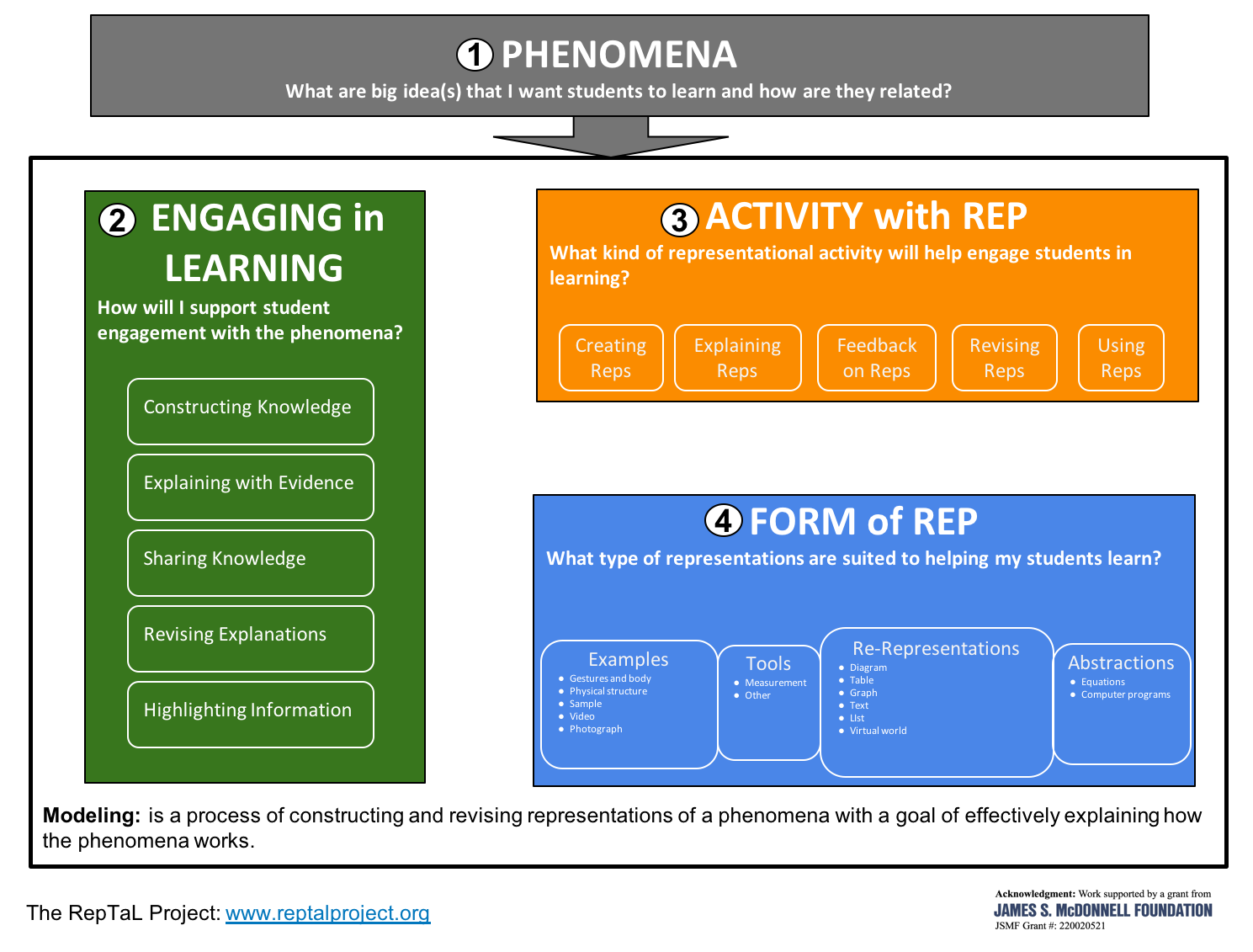Joshua Danish
Associate Professor and Program Coordinator
Learning Sciences Program
Indiana University
Cindy Hmelo-Silver
Barbara B. Jacobs Chair of Education and Technology
Professor of Learning Sciences
Indiana University
Meredith Park Rogers
Associate Professor of Science Education
Center for P-16 Research and Collaboration
Curriculum and Instruction
Indiana University
Dionne Cross Francis
Associate Professor of Mathematics Education
Center for P-16 Research and Collaboration
Curriculum and Instruction
Indiana University
Rob Goldstone
Chancellor's Professor
Psychological and Brain Sciences
Indiana University
Celeste Nicholas
Postdoctoral Associate in the Learning Sciences
Center for Research on Technology and Learning
Indiana University
Noel Enyedy
Professor of Science Education
Department of Teaching and Learning
Vanderbilt University
Danielle Keifert
Postdoctoral Scholar
Department of Teaching and Learning
Vanderbilt University
Jose Felipe Martinez
Associate Professor in Social Research Methodology
Graduate School of Education
University of California, Los Angeles
Maria Paz Fernandez
PhD Student in Social Research Methodology
Graduate School of Education
University of California, Los Angeles
Xintian Tu
Graduate Student in Learning Sciences
IU School of Education
Nicholas, C., McClain, J., Park Rogers, M., & Danish, J. (2020). Elementary teachers' elicitation of students’ funds of knowledge to support science learning with representations. Poster presented at the International Conference on the Learning Sciences (ICLS). Nashville, TN.
Danish, J., Stiso, C., Nicholas, C., Hmelo-Silver, C., Park Rogers, M., and Cross Francis, D. (2020). What, how, and why do elementary teachers think about using representations in their science teaching? Paper presented at the International Conference on the Learning Sciences (ICLS). Nashville, TN.
Nicholas, C., Park Rogers, M., Danish, J., Hmelo-Silver, C., Zhong, Q., Stiso, C., Phillips, A., McClain, J., Gerber, A., (2020). Rural elementary teachers’ perceptions about incorporating representations into their science teaching. Paper presented at the National Association for Research in Science Teaching (NARST) International Conference. Portland, OR.
Danish, J., Nicholas, C., Hmelo-Silver, C., Park Rogers, M., Cross Francis, D., Enyedy, N., Keifert, D., and Stiso, C. (2020). What, how, and why do elementary teachers think about using representations in their science teaching? Paper presented at the American Educational Research Association (AERA) Annual Meeting. San Francisco, CA.
McClain, J., Pierce, E., Zhong, Q., and Zimmermann, K. (2020). “It's above me now”: Using representations to improve student engagement of earth and space in elementary classrooms. Workshop presented at Hoosier Association of Science Teachers (HASTI) Conference. Indianapolis, Indiana.
Park Rogers, M., Nicholas., C, Danish, J., Gerber, A., McClain, J., Phillips, A., Stiso, C., and Zhong, Q. (2020). Elementary teachers’ developing perceptions of the role of representations in teaching science. Paper presented at the Association for Science Teacher Education (ASTE) International Conference. San Antonio, TX.
Park Rogers, M., Danish, J., Nicholas, C., Cross Francis, D. Hmelo-Silver, C. (2019). Supporting teacher cognition and instruction of science representations in elementary classrooms: A peek into the first year of a multi-year program. Poster presented at the Association for Science Teacher Education (ASTE) International Conference. Savannah, GA.
McClain, J., Nicholas, C., Zimmermann, K., Pierce, E., Danish, J., & Zhong, Q. (2022). Observing the Unobservable. Science and Children, 60(2).
Danish, J., Johnson, H.J., Nicholas, C., Francis, D. C., Hmelo-Silver, C., Rogers, M. P., Askew, R., Gerber, A., & Enyedy, N. (2021). Situating video as context for teacher learning. Learning, Culture, and Social Interaction, 30, 100542.


